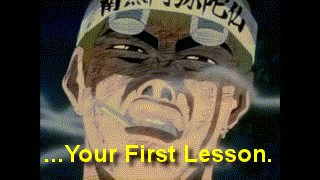- VerseTaku
- Posts
- E-40's My Ghetto Report Card and Great Teacher Onizuka: Lessons from the Streets
E-40's My Ghetto Report Card and Great Teacher Onizuka: Lessons from the Streets
E-40's "My Ghetto Report Card" is a staple in the world of hip-hop, serving as a sonic window into the struggles and achievements of life in the streets. Released in 2006, this album showcases E-40's unique slang and storytelling prowess, mixed with the hyphy movement's energetic beats. In a different cultural realm, the "Great Teacher Onizuka" (GTO) anime and manga tell the story of a former biker gang member who becomes an unorthodox but deeply empathetic teacher, aiming to reach out to his students through unconventional methods and life lessons.

Finding Common Ground in Uncommon Places
At first glance, these two works might seem like distant cousins at best. However, they share a foundational theme: the concept of education through real-world experiences. Both E-40 and Onizuka teach lessons from the streets, albeit in different styles and formats.
Identity and Society: Both navigate complex social structures—E-40 articulates the unwritten rules and hierarchies of the streets, while Onizuka confronts the rigid conformity expected in Japanese schools and society.
Love and Conflict: The album and the series delve into relationships and personal battles; love is gritty and often entangled with survival, while conflict is inevitable and necessary for growth.
Growth and Empowerment: Finally, they share narratives of empowerment; E-40's rise against the odds through savvy and hustle parallels Onizuka's journey to becoming a teacher who changes lives.
Blending Beats with Brush Strokes
E-40's lyrical acrobatics pair seamlessly with the 'show-don't-tell' nature of GTO's visual narrative. The album's beats create a rhythm that can be felt in the pacing of Onizuka's storytelling arc, his character development echoing the album's thematic beats.
"In the traffic, and I'm looking nervous..." --- E-40, "Tell Me When to Go"
This line could easily describe a scene of Onizuka in a tense confrontation, both characters exhibiting a readiness to face whatever comes at them, albeit in their unique contexts.
Emotional Resonance and the Audience
Both works command a strong emotional response. Listeners of "My Ghetto Report Card" pulsate with the energy of E-40's delivery and beat drops, while GTO viewers find themselves deeply attached to Onizuka's heartfelt and sometimes humorous efforts to reach his students.
In community discussions, fans often cite moments of vulnerability in both mediums—when E-40 reflects on the struggles of his upbringing or when Onizuka gets through to a troubled student—these moments strike universal chords.
Weaving Lyrics with Lines
"Tell Me When to Go" speaks to agency and knowing the right time to act. This mirrors Onizuka's knack for swooping into his students' lives at critical moments.
"Cause I'm teachin' life 101..." --- E-40, "Go Hard or Go Home"
The similarity with Onizuka's own philosophy of hands-on education is uncanny. Life 101 could very well be the unofficial title of Onizuka's curriculum.
Beyond the Album and Anime Pages
Fans of "My Ghetto Report Card" might find themselves surprised at how much Onizuka's dynamic approach to life and teaching resonates with the hustle and heart of E-40's rhymes. Conversely, GTO enthusiasts may gain a new appreciation of the strife and valor vocalized in E-40's music.
The intersection of these two vibrant works exemplifies that despite cultural differences, stories of struggle, learning through lived experiences, and personal growth are universal.
This multifaceted exploration into "My Ghetto Report Card" and "Great Teacher Onizuka" underlines the potent mix of storytelling that music and manga can offer. They teach us that the street's lessons are omnipresent, transcending language, medium, and beat to reach the core of our shared human experience.